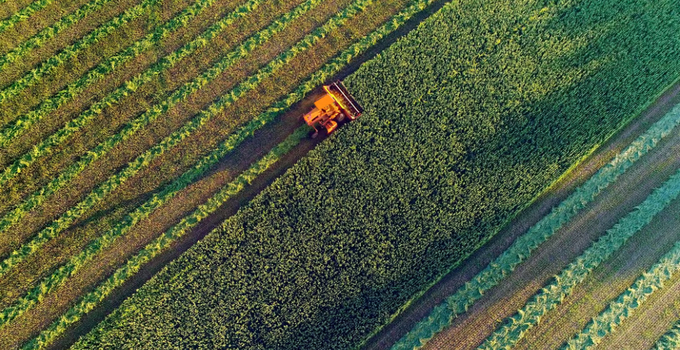June 1, 2025 | 19:38 GMT +7
June 1, 2025 | 19:38 GMT +7
Hotline: 0913.378.918
June 1, 2025 | 19:38 GMT +7
Hotline: 0913.378.918

If extended, the measures would allow support payments to individual businesses of up to €150 million. Photo: iStock
The European Commission is asking energy-intensive industries if they’d like to continue benefiting from relaxed state aid rules in the wake of the Israel-Hamas war and the impact it could have on global gas prices. This includes fertilizer producers, which last year made record profits.
Following Russia’s invasion of Ukraine in February 2022, the EU executive loosened rules on how much state aid countries can give to energy-intensive sectors to compensate them for a spike in gas prices. The measures are due to expire on December 31.
Between July and September, the Commission consulted with national governments on whether to extend the measures into 2024. The EU executive is still reviewing the feedback and has yet to make a decision, but fewer countries are expected to be in favor of the extension compared to last year.
Nevertheless, in light of gas supply disruptions following the Israel-Hamas conflict, the Commission has already reached out directly to the industry that benefits from those rules to see if they should remain in place.
According to correspondence seen by POLITICO, the Commission’s internal market department, known as DG GROW, has asked at least one industrial sector — fertilizers — which relies on natural gas as an input to make its products, if they wanted to maintain the relaxed regulation. If extended, the measures would allow support payments to individual businesses of up to €150 million.
The Fertilizers Europe industry group, which represents the continent’s largest manufacturers, confirmed to POLITICO that the exchange had taken place.
“We are in favor of this extension because there is a real risk that things can go really bad with gas prices,” said the group’s director general, Antoine Hoxha.
“The gas price is something that is extremely sensitive,” he added. “The Middle East can be a very destabilizing factor.”
Commission spokesperson Lea Zuber said the EU executive is monitoring the economic developments and the application of state aid measures and “stands ready to swiftly respond in the event of any new crisis situation.”
As tensions escalated over the Hamas attack, Israel decided to halt production at its big offshore Tamar gas field. It also halted pipeline supplies to Egypt, which is an exporter of liquefied natural gas. Global gas prices have risen from a low of €36 to €53 per megawatt-hour in the wake of the conflict.
But they are still only a third of what they were last year, when some fertilizer manufacturers decided to halt their production lines rather than operate at a loss, and are forecast to remain stable through 2024.
And, despite the gas price crunch, fertilizer producers still reaped record profits in 2022, according to an analysis earlier this year by advocacy groups IATP and GRAIN. The companies achieved this by raising fertilizer prices well above the increase in their production costs, the analysis found.
Pascoe Sabido, an energy researcher and campaigner at the industry watchdog Corporate Europe Observatory, said the Commission’s push to extend state aid rules at the behest of companies benefiting from them was a mistake.
“This is exactly what happened after the invasion of Ukraine, and it was used by industry to increase their subsidies and to delay regulations,” he told POLITICO.
At a time of skyrocketing fossil fuel, fertilizer and food prices, and against the backdrop of an escalating climate crisis, environmental experts say the case for moving away from fossil fertilizers and fossil fuels altogether has never been clearer. Fertilizer manufacturers have also started investing in the production of cleaner agricultural chemicals, but they remain a pipe dream.
The Commission has set targets for reducing fertilizer use, and it's also called on national governments to use agricultural subsidies to help farmers move away from them. But these policies have suffered a setback amid high food inflation and the fallout from conflicts in Ukraine and other parts of the world.
While EU countries doled out billions of euros in state aid to their energy-dependent industries last year, only a few, including Poland and Romania, took advantage of the relaxed rules to subsidize fertilizer producers.
The Polish state-controlled Grupa Azoty, one of the companies that received subsidies, ended up reporting annual revenues of €5.25 billion, an increase of 51 percent compared to 2021. Poland is one of the countries asking the Commission not to extend the measures into next year.
Sabido said the cozy relationship between Brussels and companies making record profits was worrisome: "It really reinforces [the idea] that the European Commission's first client, or first priority, is industry.”
(Politico)

(VAN) Vikas Rambal has quietly built a $5 billion business empire in manufacturing, property and solar, and catapulted onto the Rich List.

(VAN) Available cropland now at less than five percent, according to latest geospatial assessment from FAO and UNOSAT.

(VAN) Alt Carbon has raised $12 million in a seed round as it plans to scale its carbon dioxide removal work in the South Asian nation.

(VAN) Attempts to bring down the price of the Japanese staple have had little effect amid a cost-of-living crisis.

(VAN) Fourth most important food crop in peril as Latin America and Caribbean suffer from slow-onset climate disaster.

(VAN) Shifting market dynamics and the noise around new legislation has propelled Trouw Nutrition’s research around early life nutrition in poultry. Today, it continues to be a key area of research.

(VAN) India is concerned about its food security and the livelihoods of its farmers if more US food imports are allowed.